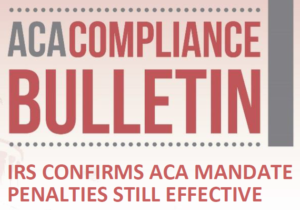
By James Swann
Feb. 24 — The switch to ICD-10 five months ago was uneventful, but concerns about provider productivity using the new codes and the threat of increased government audits remain among industry stakeholders.
Specifically, providers need to make sure their claims contain enough detail to support the selected ICD-10 code, George B. Breen, an attorney with Epstein Becker & Green, in Washington, said.
While Breen said it’s too early to expect federal enforcement action involving ICD-10 coding, providers should expect the government to be focusing on appropriate clinical documentation to support claims coding.
Providers need to look at ICD-10 through the prism of the increasing government focus on value-based payments, Breen said.
“Health-care entities also need to anticipate and be prepared to respond to aggressive payer audits, both private and public,” Breen said.
Providers are currently operating under a one-year grace period from the Centers for Medicare & Medicaid Services during which Medicare contractors won’t deny claims as long as a valid ICD-10 code from the right coding family is used.
The grace period means that a claim won’t be denied if it isn’t as specific as required under ICD-10.
Breen said providers should take advantage of the time to create effective audit protocols that can address ICD-10 issues.
“An open question that providers must determine an answer to is whether the grace period also permits that same flexibility in an overpayment analysis,” Breen said.
While the grace period will prevent outright claims denials, Breen said, it’s uncertain whether the CMS will offer a similar dispensation for any nonspecific ICD-10 claims that result in overpayments.
The International Classification of Diseases, 10th Revision (ICD-10), which took effect Oct. 1, 2015, updated and increased the number of health-care diagnoses and procedure codes from ICD-9’s 13,000 codes to 68,000 codes. All organizations that are required to comply with the Health Insurance Portability and Accountability Act have to use ICD-10 codes to identify diagnoses and procedures on health-care claims.
Smooth Implementation
The transition to ICD-10 has been smooth and uneventful, Lynne Thomas Gordon, the chief executive officer of the American Health Information Management Association, told Bloomberg BNA.
“We kept saying it was going to be just like Y2K—really no big deal,” Gordon said.
AHIMA represents health information management professionals.
Processing ICD-10 Claims
Medical practices should take a number of steps to ensure that claims using ICD-10 codes are being processed correctly, according to Robert M. Tennant, director of health information technology policy with Medical Group Management Association. These include:
assessing practice management and electronic health record technology to determine its ability to support ICD-10;
reviewing staff productivity and introducing educational program for clinicians and coders;
tracking the amount of pending or denied claims and addressing any coding specificity issues; and
conducting internal documentation audits on a regular basis to make sure that clinicians are capturing the necessary clinical documentation and that coders are selecting the right ICD-10 codes.
The ICD-10 transition went smoothly because providers had a long time to prepare, Gordon said.
ICD-10 was originally scheduled to be implemented by Oct. 1, 2013, but was delayed twice.
Gordon said the delays allowed providers to refresh their coding knowledge and bring in their “A game.”
“I’m very proud of the way the health-care system came around on ICD-10 implementation,” Gordon said.
The CMS also helped by providing the one-year grace period, Gordon said.
The grace period, which was developed in conjunction with the American Medical Association, has benefitted providers, and there have been no significant spikes in rejected Medicare claims, AMA President Steven J. Stack told Bloomberg BNA.
“During the grace period, physicians and other health-care workers are learning to adapt to the new system,” Stack said.
Stack said the AMA would continue to monitor ICD-10 for any disruptions or changes before the grace period ends in October.
Better Data
Beyond a smooth transition, Gordon said the new codes are providing better data and enabling better health comparisons across the world.
Gordon said the U.S. was the last industrialized country to transition to ICD-10, and can now compare population health outcomes with other countries.
“I think it will be good for improving quality and population health, as well as driving down health-care costs,” Gordon said.
Gordon applauded the overall ICD-10 rollout, but said providers could face a slight drop in productivity as they get used to the new codes.
“It will take at least until the end of March to get a new normal in terms of productivity,” Gordon said.
The drop in productivity is in part due to the more granular level of ICD-10 coding, Gordon said, which requires more information than ICD-9 coding required.
Gordon said AHIMA plans a study in the summer or fall of how the ICD-10 switch has affected clinical productivity.
Potential ICD-10 Issues
While Medicare and commercial health insurers have reported few glitches with the ICD-10 transition, some Medical Group Management Association members have described experiencing decreased productivity, slowed payments and denied claims, the MGMA’s Tennant told Bloomberg BNA.
Tennant said medical group practice leaders should keep an eye on claims and make sure they’re all getting paid.
One problem area has involved claims for patient screenings, such as colonoscopies, Tennant said, citing member feedback.
“Practices in many cases have correctly coded these claims, yet some Medicare Advantage Contractors (MACs) have rejected them,” Tennant said.
Tennant said most of the claims payment issues have had to do with faulty local coverage determination system edits and, for the most part, the MACs have been responsive in fixing the problems.
Epstein Becker’s Breen agreed that the ICD-10 rollout has led to an increase in payment denials, but he said the extent of the increase is still unclear.
It’s still soon into the implementation to make any realistic assessments of ICD-10 impacts, Breen said.
The AMA’s Stack said the ICD-10 grace period helped the CMS alleviate the national and local coverage determination issues that caused some ICD-10 claims to be rejected, allowing them to be resolved and not interfere with patient care.
Shortly after ICD-10 went into effect, the CMS received reports that some ICD-10 claims were being rejected because national and local coverage determinations hadn’t been updated to reflect the change to ICD-10.
The CMS was able to reprocess the rejected claims and temporarily suspend claims processing edits to ensure no further rejections.
The national coverage determination policy lists which ICD-10 codes support medical necessity and are therefore covered under Medicare, while local coverage determination policies concern Medicare coverage in specific jurisdictions.
The CMS didn’t respond to a request for comment.
To contact the reporter on this story: James Swann in Washington at [email protected]
Questions about ICD-10 reimbursement? Physician Credentialing and Revalidation ? or other changes in Medicare, Commercial Insurance, and Medicaid billing, credentialing and payments? Call the Firm Services at 512-243-6844 or [email protected]


